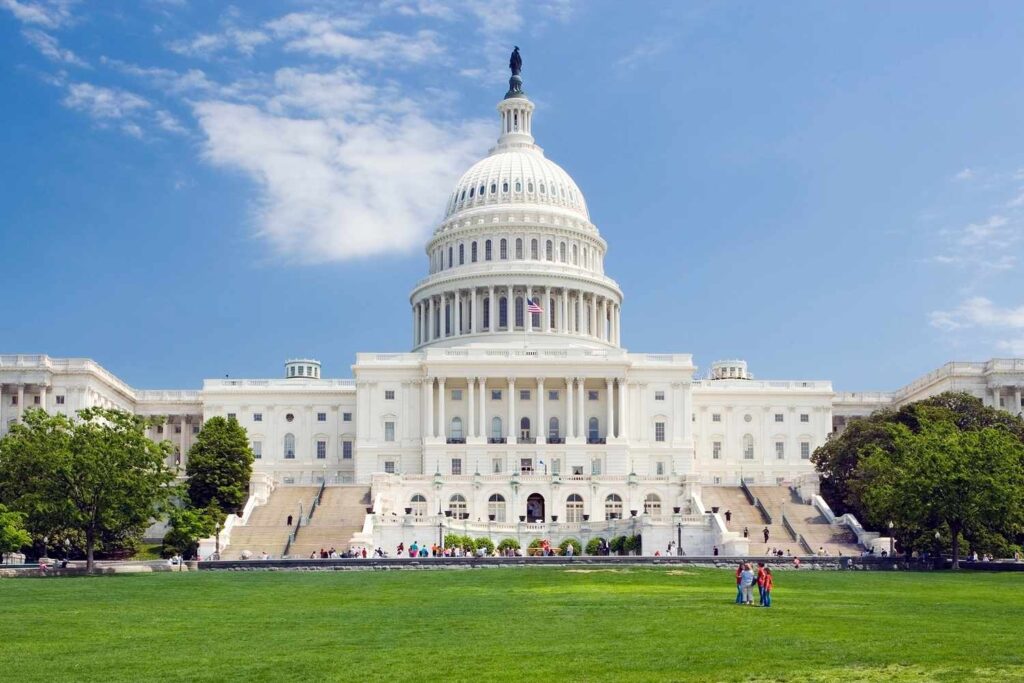In a fervent push to prevent a government shutdown, the Democratic-majority U.S. Senate was working diligently on Friday to pass a monumental $1.2 trillion government funding bill, following its approval by the House of Representatives.
The urgency stemmed from a looming deadline: without action by midnight (0400 GMT Saturday), critical departments including the Department of Homeland Security, Internal Revenue Service, and Justice Department, among others, risked closure.
The Senate’s actions followed a decisive 286-134 House vote, showcasing bipartisan support despite inciting the ire of Republican hardliner, Representative Marjorie Taylor Greene.
Greene, known for her conservative stance, threatened to challenge Speaker Mike Johnson’s leadership in retaliation.
Johnson, who rose to his position amid internal party turmoil over spending issues, found himself in the crosshairs of party dynamics once again.
Despite the tension, Greene held off on forcing an immediate leadership vote, indicating her move was more cautionary than an outright dismissal.
Senate Majority Leader Chuck Schumer called for expedience, highlighting the importance of averting a shutdown and ensuring government operations continue seamlessly for the fiscal year.
This call to action aimed to conclude months of contentious debate over federal spending levels, a recurring theme that has drawn criticism from ratings agencies concerned about the government’s creditworthiness amidst its over $34.6 trillion debt.
The proposed funding package, detailed in a 1,012-page bill, allocates $886 billion to the Defense Department and supports a broad spectrum of federal agencies.
Additionally, Congress faces pressure to pass a separate $95 billion security assistance package for Ukraine, Israel, and Taiwan, a matter generating debate among Republicans, particularly regarding support for Ukraine.
The backdrop of these discussions includes the specter of a government shutdown, reminiscent of the longest shutdown in U.S. history during Donald Trump’s presidency, sparked by disputes over border wall funding.
The potential consequences of a shutdown are significant, affecting everything from Border Patrol and immigration services to the pay of U.S. soldiers and federal workers, as well as the operations of national parks and the International Space Station.
Amidst these pressing fiscal and political challenges, the bill represents a critical juncture for U.S. governance, encapsulating the ongoing struggle between maintaining essential services and navigating the complex terrain of political negotiation and compromise.
